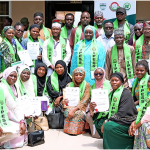



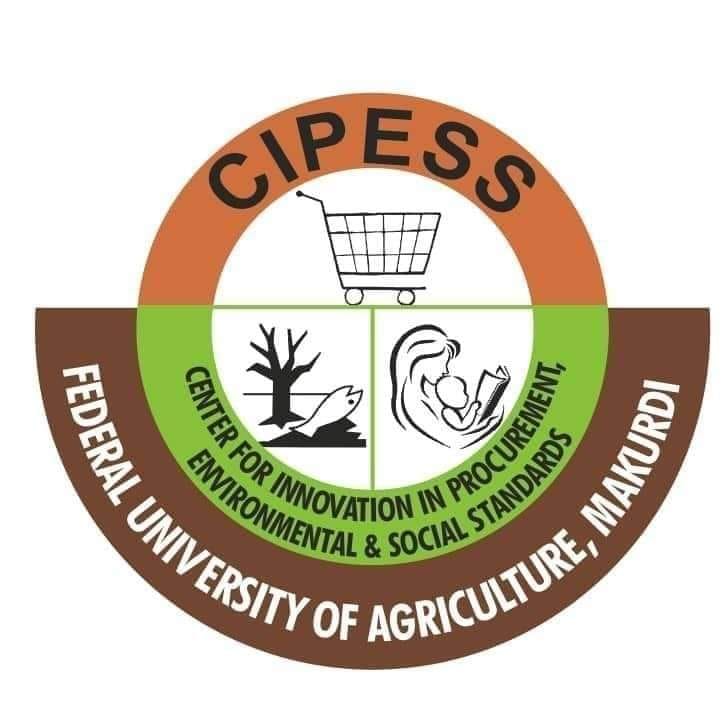

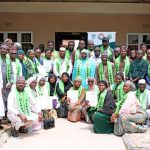
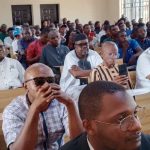
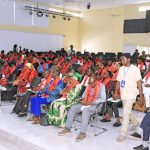

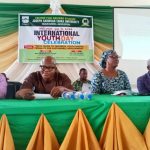
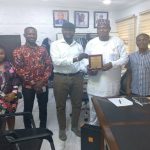
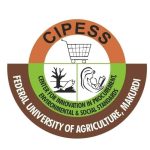
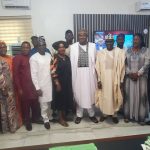
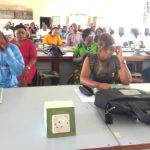
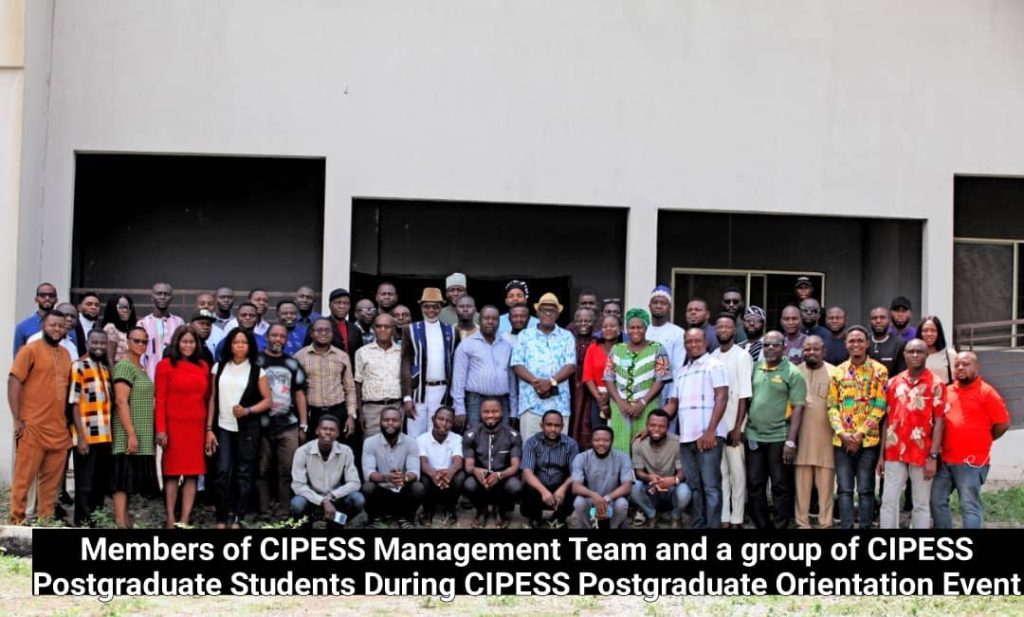
Postgraduate Diploma (PGD) and Master of Science (M.Sc.) students admitted for the 20203/2024 academic session at the Center for Innovation in Procurement, Environmental and Social Standards (CIPESS), Joseph Sarwuan Tarka University, Makurdi (JOSTUM) were on Tuesday, 28th May, 2024 hosted to an orientation event at the College of Forestry and Fisheries Auditorium, JOSTUM.
The Center Leader and Director Prof. L.A. Nnamonu, represented by the Deputy Center Leader of Environmental Standards, Professor Rufus Sha-Ato congratulated the students for their resolve to participate in programmes at the Center. Professor Sha-Ato maintained that the Federal Government having secured a loan from the World Bank has ensured that the students participate in the programmes at no cost within the duration of the Sustainable Procurement, Environmental and Social Standards Enhancement (SPESSE) project.
The representative of the Center Leader while explaining the key concepts of the SPESSE project stated that, the project which is aimed at building sustainable human capacity to ensure a critical mass of professionals especially in the areas of procurement, environmental and social standards was initiated by the Federal Government of Nigeria through the National Universities Commission (NUC).
He cautioned the student to firstly see themselves as students of JOSTUM and further urged them to remain committed to their professional journeys – revealing that, only students with commendable grades may enjoy some support even at the expiration of the project’s tenure.
Delivering goodwill messages at the event, the Deans of the Colleges of Management Science, Physical Science and Agricultural Economics and Extension, Prof. P.I. Zayol, Dr S.T. Swem and Dr E.A. Unongu (represented) respectively in separate speeches congratulated the students for the feat and the Center management for effectively executing the project in the University. They called on the students to be dedicated, committed and most importantly cooperate with key players in order to graduate within the stipulated period. Prof. Zayol urged the students to make judicious use of the opportunity presented by CIPESS to their advantage.
The monitoring and Evaluation Officer, Prof. S.A Shomkegh, Acting Head of Department, Sustainable Social Development, Dr Peter Tsue, Gender and Social Development Officer, Prof. Mrs E.G. Egbe-Okpenge as well as the Center Librarian, Mrs Esther Oyeniyi while presenting on a variety of topics connected to the programme emphasized the need for the students to clearly understand the structure and objectives of the programme in order to design a roadmap for academic success.
Professor Egbe-Okpenge called on the students to prioritize issues of their health as well as shun all forms of social vices including sexual harassment and abuse as it is a punishable offence.
On her part, the Center Librarian encouraged the students to explore the well-equipped University and Center libraries in pursuit of their academic excellence.





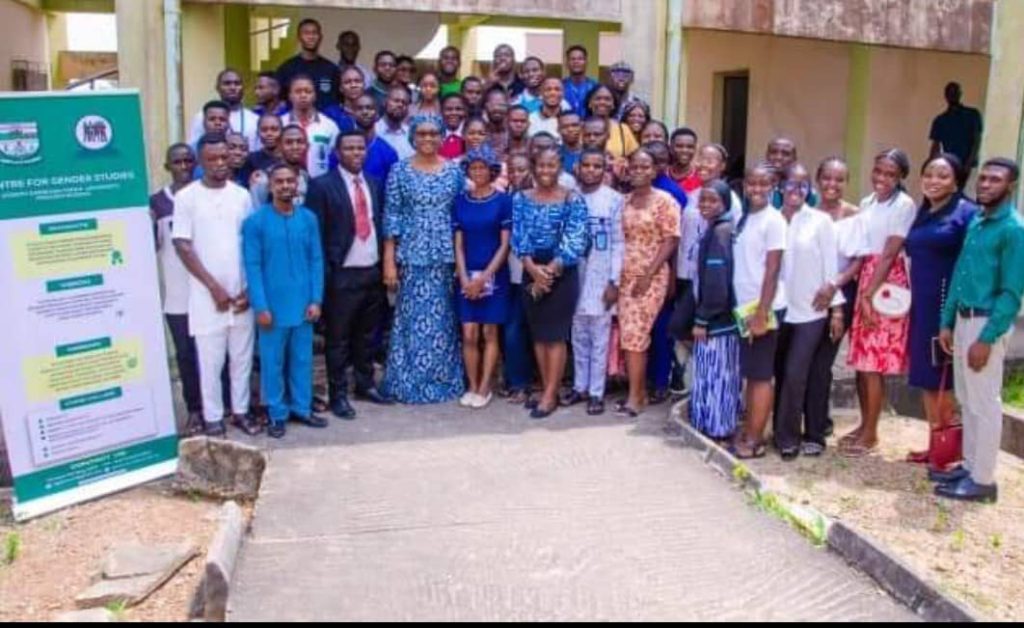
Commemorating the 2024 International Youth Day, the Center for Gender Studies, Joseph Sarwuan Tarka University, Makurdi organized a one-day symposium with the theme: “FROM CLICKS TO PROGRESS: YOUTH DIGITAL PATHWAYS FOR SUSTAINABLE DEVELOPMENT.”
The event was held on Monday, 12th August, 2024 at the College of Agricultural Economics and Extension Auditorium, North Core.
In his opening remarks, the Vice Chancellor, Engr. Prof. N.I Itodo represented by the Deputy Vice Chancellor Academic, Prof. Fidelis Ayatse charged the participants to make good use of the event as it x-rays the opportunities and challenges youths face in accessing digital technology. He urged them to utilize the knowledge to foster positive change.
In her welcome address, the Organizer and Director, Center for Gender Studies, Prof. Mrs. Orefi Abu said the International Youth Day is a day chosen by the United Nations celebrated globally every year to recognize young people’s vital contributions – and the need to release the potentials that they hold towards development and global economy. She added that the Day also recognizes their challenges and how to reduce them.
Prof. Abu noted that this year’s theme highlights the role of digital technology in achieving sustainable development goals – and draws attention to the important roles that youths play in these innovative processes.
She said that as young people, they have the ability to use their digital skills to promote sustainable development, and positive changes both within and outside our communities. She declared that the Center is ready to collaborate with the Student Union and other associations in the University to mark this day, going forward.
In the lead presentation titled “SIGNIFICANCE OF DIGITAL LITERACY FOR YOUTH EMPOWERMENT: CHALLENGES AND OPPORTUNITIES,” Dr. Chris Eche defined digital literacy as the ability to effectively and critically navigate, evaluate and create information using a range of digital technologies. He said there are two sets of people in the digital space; those who are able to critically navigate and those who are able to create information. He outlined the different levels of digital skills to include; Basic digital skills, Internet and communication skills, Information literacy, Literacy skill set, Content creation level, Cyber security and Problem solving.
Dr. Eche acknowledged that digital literacy is crucial for empowering the youth in various aspects of life from education and employment, to civic participation and personal development. He stated that while there are challenges to achieving digital literacy there are also significant opportunities to address these challenges through targeted policies, educational reforms, community initiatives, and innovative learning.
Presenting the second paper titled “YOUTH AND DIGITAL ADVOCACY: THE POWER OF SOCIAL MEDIA FOR SOCIAL CHANGE AND SUSTAINABLE DEVELOPMENT,” Dr. Mrs. Hephzibah O. Obekpa observed that in an increasingly advancing world, digital literacy has been identified as a powerful tool for driving social change. She said Social media platforms are not just for communication but powerful travel engines for organization and activism.
She pointed out that the power of the youth in digital advocacy can be explored through their unique perspectives and passion, creativity and innovation, energy and resilience, education and knowledge, social media movement, policy influence and intergenerational collaboration.
Furthermore, She explained that Social media for change and social development should be one that uses the resources responsibly with the next generation in mind – emphasizing that any change that has to be sustainable must look beyond the current generation.
Dr. Obekpa concluded that young people are not the leaders of tomorrow but change makers of today. She said digital liaising offers unprecedented opportunities for youths to amplify their voices, influence policies, and drive social change on a global scale; therefore, it is crucial that young advocates are equipped with skills, knowledge, and critical framework to navigate effectively and responsibly.
Speaking on the topic “YOUTH AND MENTAL HEALTH IN THE DIGITAL AGE” Dr. Nathaniel Iber said everybody loves good health whereas mental illness is an enemy of progress and it cuts across all ages. He noted that whenever a persons abnormal thoughts, feelings or sensory impressions cause him objective or security harm mental health is said to be present.
Dr. Iber explained that mental health could be caused by alcohol, excess stress and inability to organize time well. He opined that social media has become an integral part of youths’ lives, affecting their self esteem, body image, and overall mental well-being.
The Doctor said the impact of social media could result in anxiety and depression through cyber bullying, online harassment and digital addiction however it also provides platforms where one can seek help, like, seeking online therapy and also digital literacy and education.
In a closing remark Prof. Solomon Shola suggested that the University should enter into partnership with a Company to provide incoming students with tablets so as enhance easy access to information through their years of study.
He thanked the organizers of the event and hopes that the programme be sustained.
The event witnessed sessions of questions and answers, as well as drama presentation.
